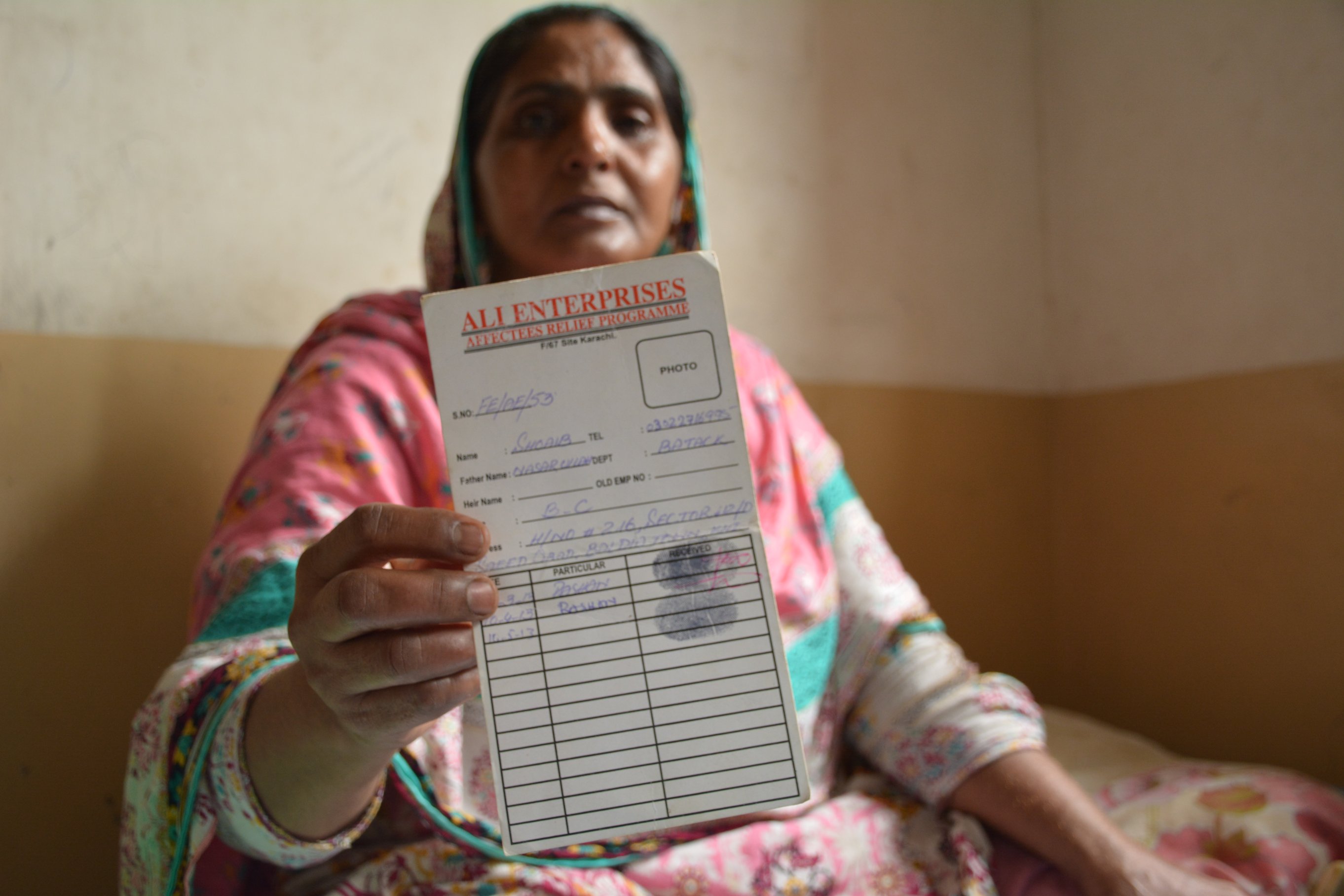
The need for a strong Pakistan Accord is urgent and immediate, safety data show
A Clean Clothes Campaign brief that was launched today shows that deadly safety incidents and violations occur regularly in Pakistani supplier factories to major brands. These incidents highlight the immediate need for a strong expansion of the International Accord on Health and Safety in the Textile and Garment Industry to Pakistan, as garment worker unions in Pakistan have been calling for since 2018.
Every brand which has not yet signed onto the Accord, must do so immediately to protect their workers, especially brands implicated in this brief, such as Levi’s, Gap, and Kontoor brands (Lee, Wrangler).
The safety incidents and violations in this brief are just a snapshot of the full extent of safety issues in Pakistan, where many safety hazards go unnoticed and even deadly incidents will not be mentioned in media, due to lack of effective oversight and the sheer amount of such incidents. A Clean Clothes Campaign factory incidents tracker that lists deadly and near lethal factory incidents since January 2021 shows over three dozen of such incidents in Pakistan over the past twenty months in factories of both Accord signatory brands and brands that have not signed the Accord. Most of the factory level issues mentioned in this brief could have been easily detected and remediated, had a programme like the legally binding International Accord already existed. This safety programme came into being in 2013 in direct response to the Rana Plaza collapse in Bangladesh. But even though only a year before that, Pakistan had seen the most deadly fire in a garment factory ever around the world, no such programme emerged there.
Ten years on, finally, steps towards initiating a Pakistan programme as part of the International Accord are well underway. However, two major hurdles remain to be overcome. First of all, while plans are in an advanced stage, the actual decision when to officially launch the programme has not been taken, and workers remain unaware of when they will be able to appeal to the programme’s protection. Secondly, while there is consensus among stakeholders that this programme can not be an exact copy of that in Bangladesh, the parameters of the new programme still must be decided upon. This brief stresses the need to shape these parameters according to the needs of workers and their union representatives. A coalition of Pakistani unions and labour rights organisations has already formulated a vision of what they would need a Pakistan country programme to look like for it to be successful in their national context. This brief urges all stakeholders involved to do justice to the needs of the Pakistani workers in the formulation of the programme’s content and in launching operations by the start of next year.
Nasir Mansoor, General Secretary of National Trade Union Federation in Pakistan, states, “The factory incidents highlighted by the workers in Pakistan show how dire the need is for Accord expansion. Workers deserve to feel safe and protected when going to work, and the Accord should start its operations before the end of the year. The Pakistan Accord should protect workers in garment factories, in textile mills, and in informal small workplaces alike. We understand inspecting all units will take time, but all those workers should have the right to file complaints if they are in danger from the start of the programme.”
Zehra Khan, General Secretary of Home Based Women Workers Federation in Pakistan, states, “For us as trade unions one of the most important principles from the Accord is the equal sharing of power. Under the Pakistan Accord workers and companies each should have the same amount of power. Then we can trust the organisation to be truly independent and to make workplaces safe in a credible and transparent way for all workers in the garment supply chain.”
Ineke Zeldenrust, International Coordinator at Clean Clothes Campaign, states, “With due diligence legislation established in several European countries and under development in many more, brands can no longer afford to delay. They know harm is being done to workers in their supply chain, and every day the Accord programme is not yet operational is another day workers' lives are at risk."